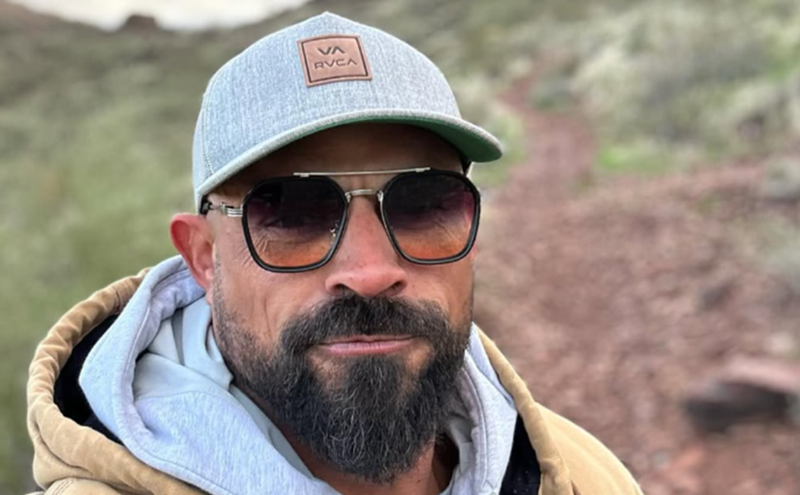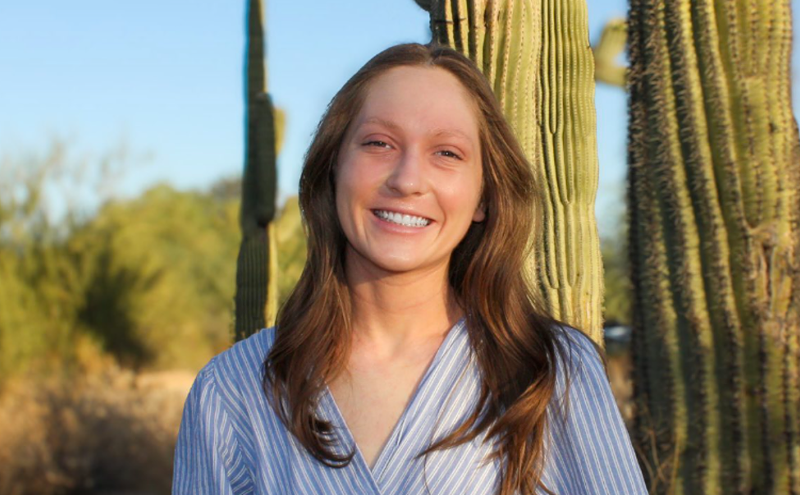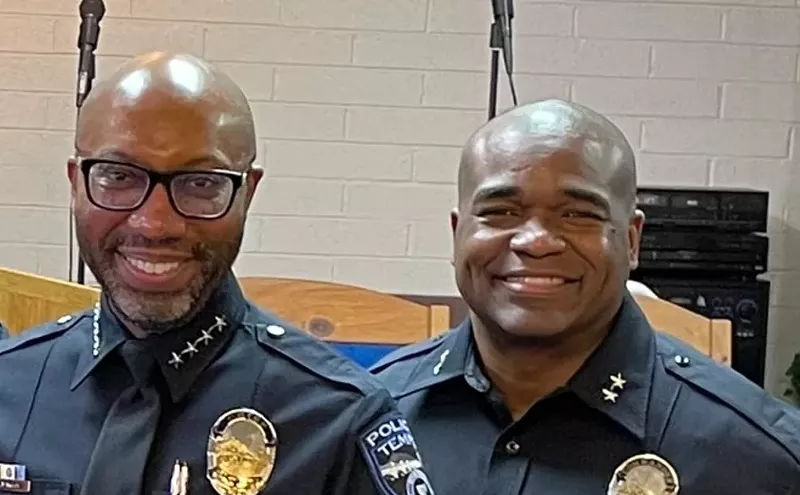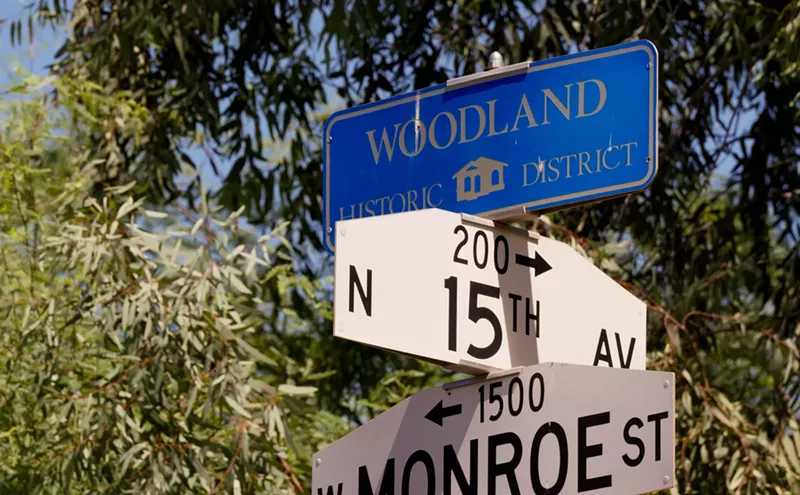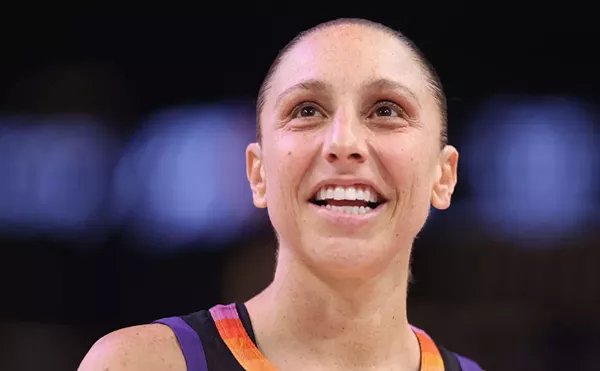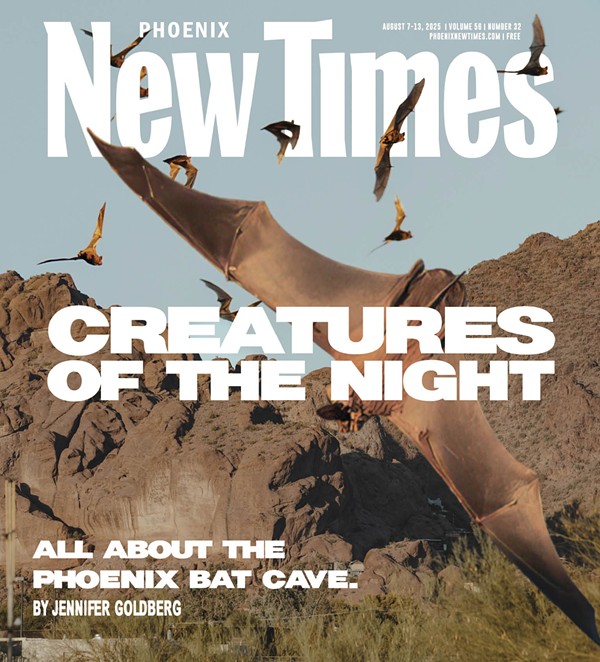He's not too fond of his ironic namesake, the president, for taking his time mobilizing the guard while Elton and his wife waited for a helicopter on the interstate for three days. He's also not too happy with the mayor of New Orleans, for not having done enough to prevent his city from getting into that much of a mess in the first place.
"We were sitting on the bridge for three nights, man. Sleeping on concrete, no cover. They give us water, but as far as food, we didn't have nothing to eat for three days."
But Elton Bush loves Arizona. It's the dominant feeling around 1826 West McDowell Road, the address of the Arizona Veterans' Memorial Coliseum and the temporary address, still, for approximately 76 (as of Sunday evening) displaced Hurricane Katrina evacuees, mostly from New Orleans.
The first two days, one state official says, the original population of 550 seemed "amazingly quiet." On the cots spread out around the Phoenix Suns' old stomping grounds and sitting along the long cafeteria tables set up in the busy outer ring of the arena, volunteers say most of the people just sat around in shock.
The first emotion to show was gratitude. The first common character trait: resilience.
Jannah Scott, the freshly appointed policy adviser to Governor Janet Napolitano on faith and community initiatives and the woman in charge of a team of spiritual care providers at the Coliseum, told a gathering of local religious leaders at a nearby church six days after their arrival: "Our people from the Gulf Coast of Louisiana, Mississippi and Alabama are some of the most resilient people that we will ever meet." She marveled, "Some of them had to push bodies aside to get through the water. And yet they can still find joy. They're smiling. Telling us, 'Thank you.'"
Like most of the evacuees, Elton Bush doesn't blame God, even though His name is listed on his insurance forms, after a checked box and the words "act of."
"Most of them don't blame God for what happened," says Warren Robertson, a minister and volunteer on Scott's team who's been working in the spiritual care chapel, set up in a small room inside the Coliseum between the makeshift pharmacy and the Post-it-filled message board.
"As a matter of fact, most of them feel God brought them here. With a lot of these people," says Robertson, who was born and raised in New Orleans and now lives in the Valley, "you're looking at maybe fourth-generation welfare. But there's no way to escape. It's like the people that had no car to get out of the hurricane. They get locked in, they think there's nothing any better for them. A lot of them say that: 'I was in a situation that I'd have never left. And it's just washed me out to a promised land.'"
A promised land? Phoenix?
It's a brand-new curiosity: black people who don't think Phoenix sucks.
Forget Ev Mecham and the pickaninnies. Forget that Public Enemy song.
Bishop Alexis Thomas, the youthful, charismatic leader of the Pilgrim Rest church at 14th Street and Jefferson, a center for much of the black community here, was so excited after seeing all the positive energy at the Coliseum, he told the hundreds attending his Sunday service, "All that bad stuff people ever said about Phoenix? It's all turning around now! All that Martin Luther King holiday stuff? It's gone!"
But the Katrina evacuees still at the Coliseum haven't been getting around much yet. When the black volunteers, like Homer Washington, who's lived here all his life, hear the new people talking about how wonderful all the people of Arizona are, he has to bite his tongue.
"You almost don't want to tell them," he says, smiling.
Ready or not, just six days after their arrival, a little bit of the unseen Arizona comes to the Coliseum.
On the south end of the parking lot, behind a chain-link fence and a sign reading "No Loaded Guns Inside," a sizable segment of the Valley's population that the evacuees haven't yet seen begins gathering for the "Crossroads of the West Gun Show," kicking off its weekend run as scheduled.
Inside the sprawling, corrugated-steel exhibition hall, the almost exclusively white crowd mills around the booths clutching rifles, clips and mags and picking up bumper stickers proclaiming "100% Redneck" and "Bubba University." At a far end of the hall, a pair of young men with closely shaved heads snicker while pointing at a tee shirt for sale depicting a cartoon image of three Klansmen surrounded by the words "The Original Boys in the Hood." One dares the other to buy it and wear it over to the Coliseum.
Out by the entrance, a man seeking signers for a petition to put NRA supporter John Greene on the gubernatorial ballot says he's been hearing comments all morning about the city's new residents taking refuge just across the parking lot.
"I heard some people say, 'Thank God, they've got armed cops around that place!'" he says, trying not to smile.
He stops talking as Elton Bush and his wife make their way across the hot parking lot on the way back from the nearby Circle K, nervously eyeing the contingent of rifle-toting Bubbas glaring back at them from just inside the chain-link fence.
Welcome to Arizona.
The first few days after the roughly 550 evacuees from the Gulf Coast arrived in Phoenix on Sunday, September 4, the Coliseum was harder for the average person to get into than a Diddy after-party.
All around the west entrance to the cavernous 40-year-old arena, dozens of busy people wearing laminated ID tags hustled between the doors and a long row of trailers as if stocking the backstage area for an all-star awards show.
Authorities began turning down citizen volunteers after the list mushroomed to 1,300 in just two days, but even that didn't stop locals from flocking to the scene to get a glimpse of our personal hurricane victims. Well-meaning families in SUVs stocked with new clothing, toys and underwear grumbled when stopped at the south entrance to the state fairgrounds by signs telling them to take their donations to the Salvation Army headquarters at 27th Street and Van Buren.
For a while, some turned-away compassion junkies took to stopping for a Thirst Buster at the nearby Circle K at 15th Avenue and McDowell Road, angling for a handshake from one of the evacuees walking into the convenience store to buy a can of beer -- the one amenity prohibited anywhere near the Coliseum.
This national love fest was even better than the one following 9/11. Most of those hit by the hijacked jets in the World Trade Center died instantly in the rubble of that attack, leaving a stunned nation to mourn sainted ghosts and warm surviving family members with cards and gifts sent from afar.
The majority of the people hit by Hurricane Katrina, on the other hand, lived. And went on tour.
At first, there was a certain rock-star buzz about having more than 500 of the world newsmakers in our own backyard -- a hotter ticket than "American Idols Live."
At the Macayo's restaurants around the Valley, which hired half a dozen cooks, cleaners and waiters at the job fair held on the fairgrounds the first Thursday and Friday, employment supervisor Bob Neckes said fame even followed his newest workers to their job sites.
"Customers want to take pictures with them," Neckes was still saying by their third day on the job. "For the first day, I think it was kind of flattering for them. But now it's almost like they're being harassed. They're being treated like professional athletes."
All too soon, however, their star appearance at the Coliseum begins to look like a limited engagement. Within days it's confirmed that the Arizona State Fair, traditionally held in mid-October, would go on as scheduled, requiring all the evacuees to be placed into other living arrangements by the end of September.
What initially sounded like an inhumane deadline quickly begins to look meetable. By the Friday following the evacuees' arrival, more than 200 people have been placed in some sort of housing and are gone from the Coliseum. In an astounding show of efficiency, the Department of Economic Security and local businesses manage to cut through spools of red tape to find 86 of the evacuees immediate, start-Monday-morning jobs at the job fair.
The way the Governor's Office spins it through the media, our newest residents -- about half of them professing plans to stay here indefinitely -- are finding homes, jobs and happy new beginnings in Phoenix. There's a clear feeling that our good work is nearly done.
On local talk radio, some of the callers are already looking toward Hurricane Ophelia, and wondering if the people along the Carolina coast will be our next evacuees.
"I'm already getting callers saying, 'Enough Katrina,'" says David Leibowitz, the mid-morning man at Newsradio 620 KTAR. "They're saying, 'I've done enough, I've made my donation. Now let's move on.'"
But Leibowitz says he's also been getting calls indicating more than just the usual compassion deficit that typically follows weeks of large-scale do-gooder efforts. Calls that kind of point to another reason much of the city may be getting tired of dropping their coins in the Katrina Fund jars at the drive-through windows.
In the days immediately following the evacuations, a lot of people phoned in outraged over the media's inaccurate use of the word "refugees" when referring to the hurricane victims.
"These are not people from another country," went the jingoistic outcry fueling the initial outpouring of generosity and support. "These are some of our own."
But as the pictures of the displaced hurricane victims begin unfolding in the news media, it soon becomes apparent that the evacuees living in the Coliseum -- primarily black, and primarily poor -- are not so much like "our own" predominantly white, middle-class population after all. News reports of looting on the flooded streets of New Orleans and unpoliced drug use and sexual assault at the city's hellish Superdome only serve to reinforce all the dreaded racial stereotypes.
"We've had an enormous amount of people come out of the woodwork who are savvy enough to talk in code, about the 'socioeconomic situation' brought on by welcoming the people from New Orleans," Leibowitz says. "But then we've had a lot of people who flat-out say we're welcoming criminals. You kind of feel like you kicked over a rock, and out comes bigotry."
There are just so many easy and enjoyable ways to help the victims of Hurricane Katrina here in the Valley.
For a $30 donation to the American Red Cross Katrina Relief Fund, you can get a special Rolf's Makeover from popular Phoenix hair stylist and Good Morning Arizona standby Rolf Lohse at the Civic Plaza's Beauty and Health Expo.
By staying one night at the ritzy James Hotel in Scottsdale, 10 percent of your $329 room fare will go to Katrina relief and entitle you to a special "We Care" turndown amenity on your pillow -- which, according to the publicist for the hotel, could be anything from a James towel to a hat, flip-flops or bath products.
Any of the charity promotions being advertised by Valley merchants sound more attractive than the offer being extended on this Tuesday night to a group of hundreds of local churchgoers filling the seats of the giant Pilgrim Rest church.
"We need for people not to just take folks, as we've seen, and put them into apartments and say, 'I've done my good,'" says Jannah Scott, who was immediately thrown the massive task of organizing a citywide spiritual care network to keep tabs on the evacuees long after they've left the Coliseum.
"We need to really keep an eye on what's happening with the folks. We need to connect each of these people to someone who can say, 'I'm gonna walk along with you for the next year, until you and your family are back on your feet, and totally restored.'"
Although notice of tonight's meeting has gone out to church leaders of all faiths spread out across the Valley, the people who've shown up to sign their name to a roster pairing them with individual evacuees are overwhelmingly from the black community. Members of the downtown Baptist churches, the Muslims, Nation of Islam and Promise Keeper groups are heavily represented, and the presentation itself occasionally feels like an old-school Baptist prayer meeting.
"All right, touch your neighbor and say, 'This is nitty-gritty ministry right here!'" says Bishop Thomas, and everybody does just that. "Don't say you can do it and not show up!"
Scott reasons the black community has signed on to help the evacuees through the long haul because many of them can relate to being in "the lack of" situation the Gulf Coast transplants now find themselves in.
But after spending 10 days straight with the evacuees, Scott cautions that some of the things these people have been through -- not just since the hurricane, but throughout the generations of disenfranchised treatment they've endured as black, Southern poor -- will be shocking even to the elder black folk in the Phoenix community.
"If you want to see the impact of centuries of oppression, and centuries of racism, and centuries of keeping people out," Scott says, "you will see that among many of the brothers and sisters that we'll be serving in the days ahead. We have to be sensitive to the fact that this is not just another poor person. This is someone who's really been through some things."
Despite the public impression that our Katrina victims are being taken care of, the black community gathered at Pilgrim Rest on September 13 learns that many are leaving the Coliseum without establishing connections, on benefit packages set to run out soon.
Rita Story, a program director for the First Institutional Baptist Church enlisted to oversee housing and social services for the evacuees, takes the stand after Scott and presents a behind-the-scenes view of some of the arrangements the evacuees have been offered that no one's been reading in the papers.
"We had a lady who was offered a job at 19th Avenue and Thunderbird, and given a home for six months in Gilbert. And a bus pass," Story says, eliciting laughs from the crowd. "We had to tell her it's a pretty safe bet she wouldn't get to work unless she left the day before."
One by one, Story begins going through the massive stack of papers that have been given to each evacuee, giving the crowd a quick taste of all the paperwork the New Orleans transplants will have to attend to after the emergency shortcuts expire.
"Employers are being kind now," Story says, "but if they apply for another job, they may not have the same latitude they've been given so far." For some evacuees, the compassion that business has shown them as temporary residents of 1826 West McDowell is quickly running out. "People are already getting bills delivered to the Coliseum," says Story, to the sympathetic groans of the crowd.
The Phoenix bus passes each evacuee has been issued expire at the end of September, and almost all of them are here without cars. Many of them have been placed in apartments offering a special evacuees deal of three months' free rent. Will they be able to afford to stay where they are when those three months are up?
In addition, the essential state Department of Economic Security benefits the evacuees have been given -- like food stamps, cash assistance, unemployment insurance and family vouchers -- are good for only three months. After that, they'll need to re-apply -- and this time, they'll need to present all the paperwork and fees that were waived the first time around.
There'll be posttraumatic stress disorders, resurfacing problems with drug addiction and substance abuse, and the still-unknown effects of, as Scott puts it, "spending five days in water where dead bodies were floating by, and people had to go to the bathroom in the water."
"What we don't want to have happen," says Charlene Flaherty, of the homelessness division of the Department of Economic Security, "is for these people to wind up becoming part of our homeless population as these issues come to the surface, and people start to fall out of these temporary situations. That would be like being victimized twice."
In the spiritual care chapel inside the Coliseum, accessed by registering as a volunteer, Darren Watson wanders in quietly among the four volunteer clergy members and asks if anyone there could join him in prayer.
Among a large group of evacuees at the Coliseum, the big, barrel-chested Watson is a genuine hero. The night Katrina hit New Orleans, Watson commandeered a truck and gathered up residents in the low-lying Ninth Ward region, taking them to a middle school on higher ground. Before long, there were 225 people packed into the building, and Watson began making trips to nearby stores to gather food to be cooked in the cafeteria.
Had a news photographer caught him, reporters surely would have called his actions looting. But to the 225 hungry people stranded for three days in the abandoned school, Watson feels he was "a shepherd" doing God's work.
Everyone in Watson's schoolhouse shelter was finally helicoptered to the airport and flown to different cities -- some to Phoenix, others to Houston and Baton Rouge. But more than a week after landing in the Coliseum, Watson still has not been able to locate his own two children. He's tried the computers linked to the Red Cross database. Maybe the new communications center set up by Cox outside in trailer 8 might be able to help him.
Despite the turmoil of still not knowing where his son and daughter are, Watson has already secured a four-bedroom house in Glendale for himself and his fiancée, and a job with Allied Construction. "I start tomorrow," he says. "Praise God!" Wilson's fiancée got a job here, too, and he feels positive about starting over in Arizona. "God is awesome," he says. "I've got more than I need."
Across the parking lot from the Coliseum, just outside the big yellow exhibition hall being used for the job fair, New Orleaners Kenneth Willis and his fiance Lisa Scarborough compare notes on the jobs they've just been hired for. Lisa starts a housekeeping job Monday at one of the Valley's Macayo's; Kenneth has something lined up in construction.
"We didn't know we were coming to Phoenix," says Scarborough. "We landed in Houston first. But it looks like we're going to stay."
Willis thinks his fellow evacuees will bring a resilience and drive to their jobs that will inevitably show them to be valuable assets to Phoenix.
"I think what you'll eventually see is the people who stay will have the right mentality for what you want in this city," he says. "You don't want the lazy people, you don't want the drug addicts or the gangstas. But the ones who stay will definitely help the economy, 'cause they'll remember what the city did to help us."
He and Scarborough get up to make the long walk back to the Coliseum, where the couple is still trying to line up housing, "our next major hurdle."
"You'll be getting the good ones," he says, assuredly.
On Tuesday, September 13, election day for downtown's District 8, Opal Ellis sits outside the voting center set up at Pilgrim Rest church handing out fliers encouraging people to vote for her grandson, Jarrett Maupin. (He lost to incumbent Mike Johnson.)
Ellis, who publicly protested discrimination in Phoenix in the 1940s and pushed for the city's MLK holiday in 1984, is one of the names on Jannah Scott's short list of black community leaders the governor would like to have at the Capitol for this Friday's national day of prayer for the Katrina victims, declared by President Bush.
But so far, Ellis says, she hasn't gotten the call. "I have been up to the Coliseum and I've given my name -- whatever that means to them," she says. "Still haven't got in."
Like her headstrong grandson, Ellis hasn't had the patience to attend meeting after meeting just to get credentialed by Scott's network to become a runner.
"I'm not going to keep going to meetings so I can sign up to get some towels, and get some water for these people," she says. "No, uh-uh. These people need love. These children need to be hugged, and they need to be reassured."
Ellis says she's seen the Red Cross volunteers hug the evacuees on the news, but stresses it's just not quite the same.
"I'm not saying that white people can't show love," she says, laughing. "But there's a difference in the hugs. White people don't hug the same as black folk do."
Without trying to, Ellis ends up striking the perfect metaphor for how the evacuees have been handled by both the white and black sectors of the Valley's population.
With the initial outpouring of cash donations, volunteer social services and the various "We Care" charity contributions, the 550 Katrina evacuees delivered to our city got to experience the Great White Hug.
Now, as that clinch quickly loses its grip on the evacuees' shaky future, it's up to the faith-based community to embrace however many of them choose to remain here throughout the coming challenging months.
"We wanna make sure that these families are not just served for a week and a half," says Bishop Thomas at the Pilgrim Rest meeting. "We wanna make sure they're served for the whole length of time that they're gonna be here. And for many of them, they ain't going back!"



